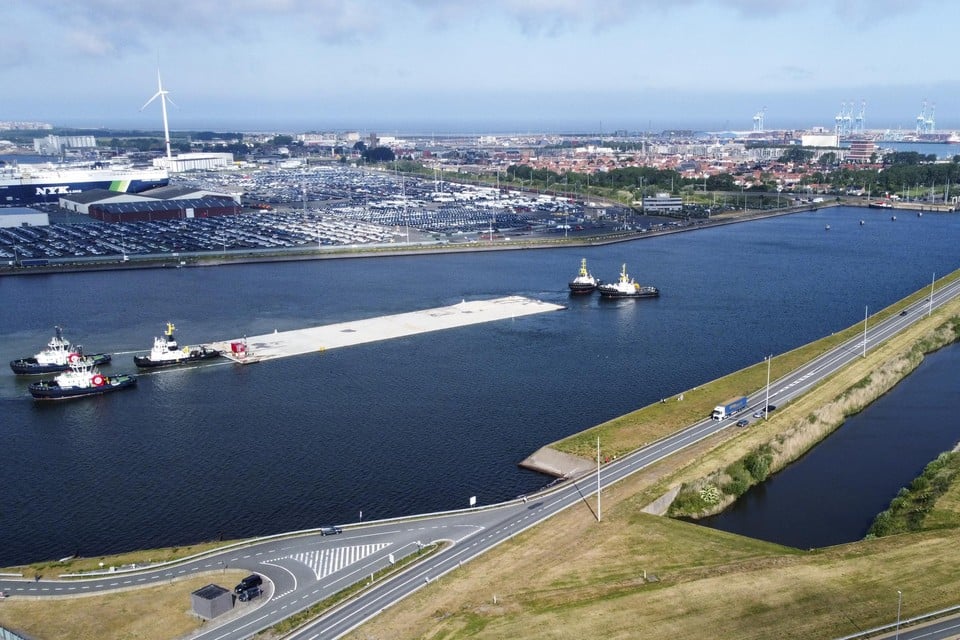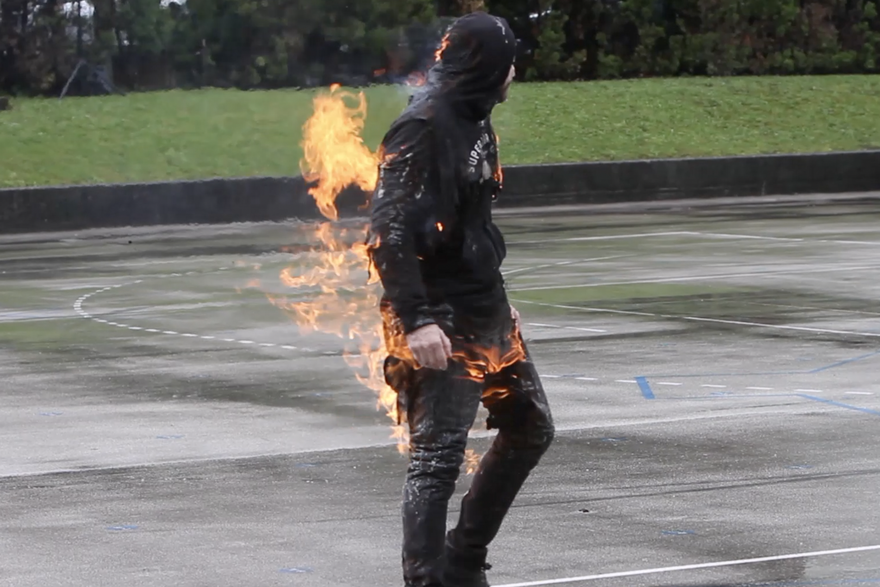Investigation on the school gaps of the Agnelli and Rocca Foundation: two years of delay in mathematics for southern students, three for those of the professional
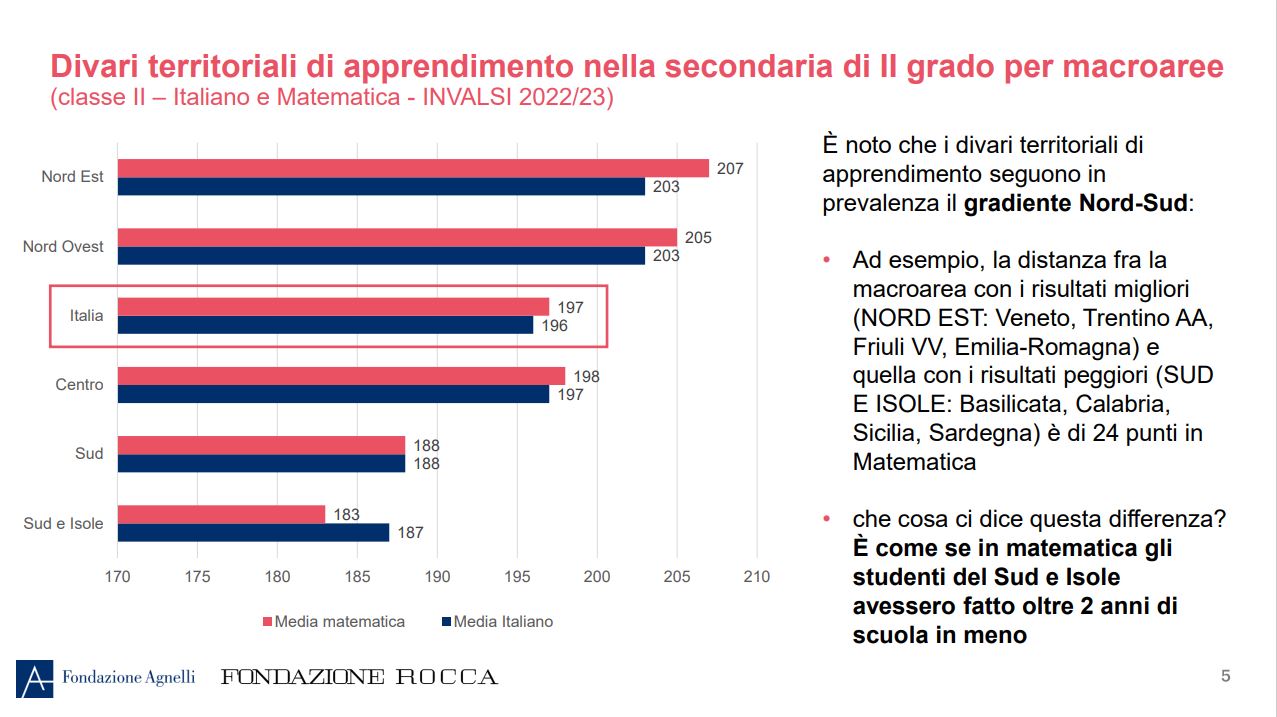
The president of Fondazione Agnelli Andrea Gavosto: « Rethinking the first two years of superiors to give everyone a more robust level of basic skills ». Gianfelice Rocca: « The real differences are the individual schools »
The equity of a school system can be seen from its ability to reduce, if not to cancel, the starting differences. Instead in Italy, in 2025, things are still like this: at the end of the second year of superiors A boy from Taranto is so back in mathematics that he is as if he had gone to school two years less than his peer from Treviso. A record in Europe. And the differences do not end here: because even in the Northeast of miracles there are enormous gaps between one school address and the other, so much so that the delay in mathematics of A pupil of a professional institute is equal to more than three years compared to those who are enrolled in a technical institute or a high school.
These are only some of the data of theInvestigation of the Agnelli Foundation and Rocca Foundation on the « learning gaps in Italy » presented today in the Chamber. There are virtuous regions such as Puglia who obtain much better results than the other regions of the South, and others like iThe Lazio that instead is definitely worse not only of the other regions of the center but also of Abruzzo and Molise (Invalsi and Ocse-Pisa data).
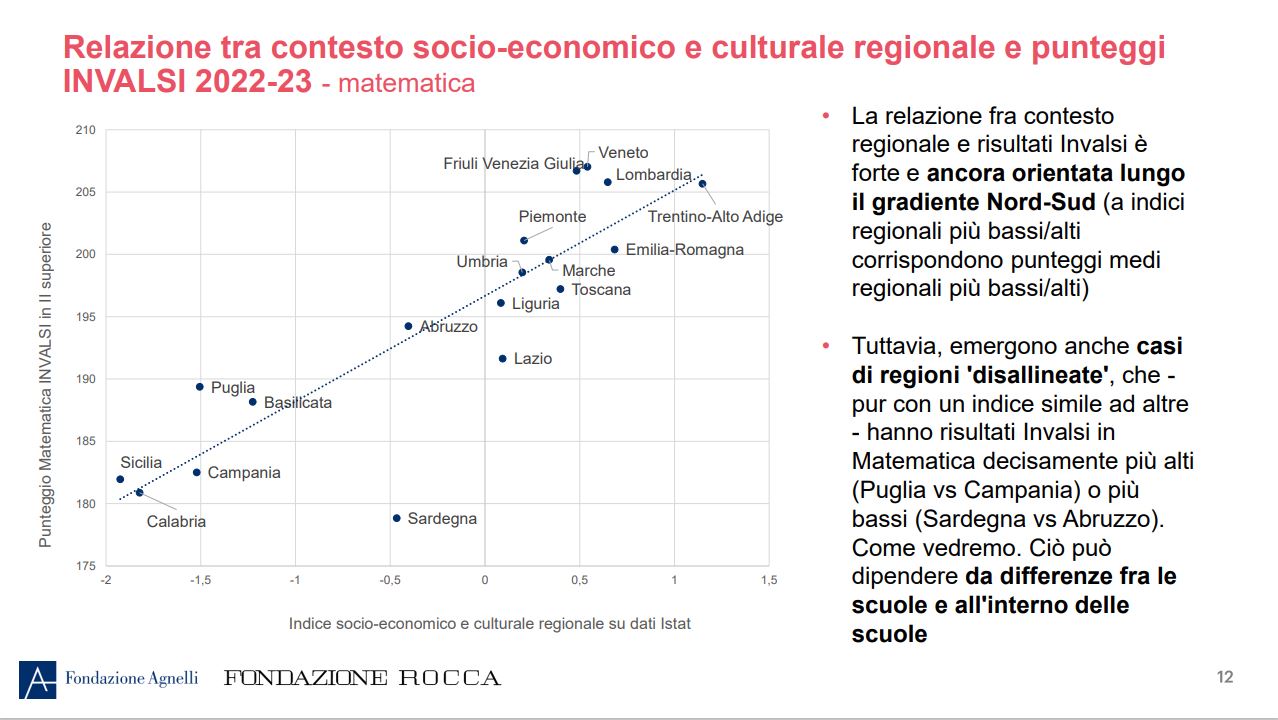
The first difficulties of the boys (in Italian) and girls (in mathematics) are already noticeable in second grade: It is as if together with the weight of the backpack every pupil dragged himself, from one year to the next and from one school degree to the other, also that of his gaps. These differences they explode in middle school and then solidify to superiors. With the same other conditions, Attending the classical high school or linguistics involves a disadvantage in mathematics of 14 points compared to the scientific. The technicians are doing in mathematics, the professionals sink the basic skills in both.
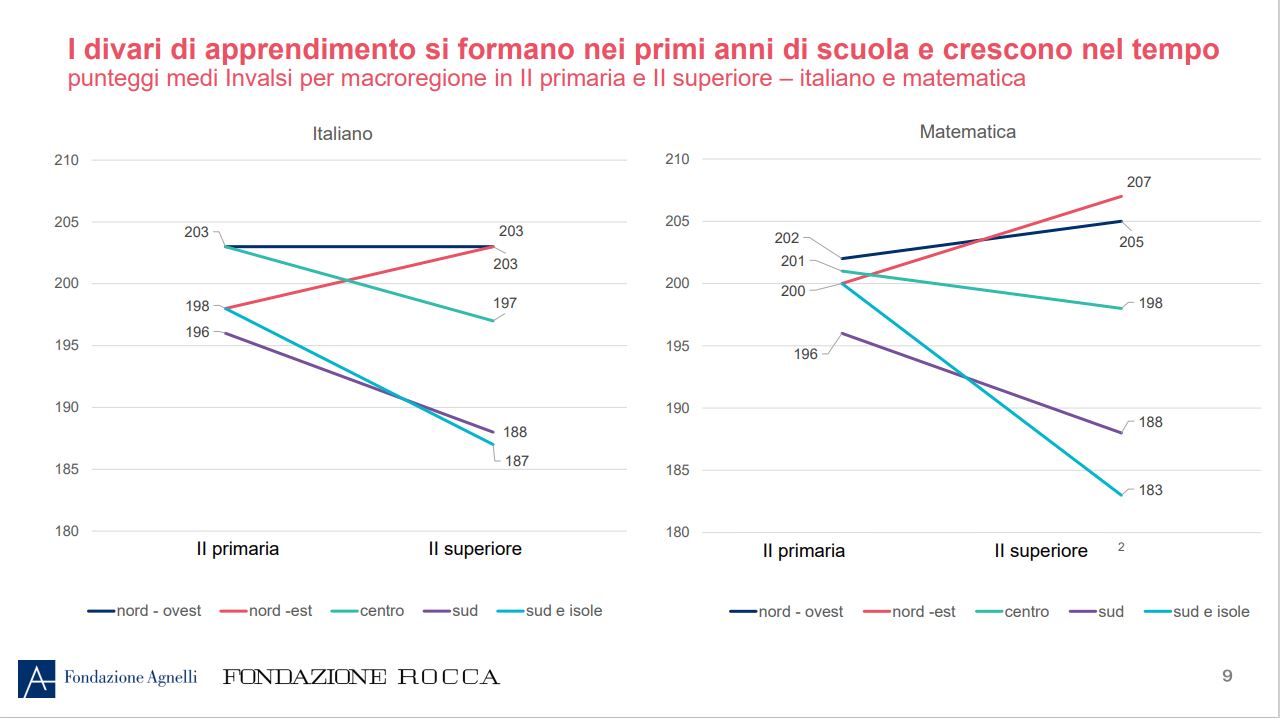
The various high school addresses have « An excessive impact – observed the president of the Agnelli Foundation Andrea Gavosto -, which in perspective should lead to rethinking the structure of the high school to give everyone a more robust and common level of basic skills». Said otherwise, it would be necessary to standardize the first two years of superiors – what still falls within the school compulsory – redefining a « hard core » of transversal skills at each study address.
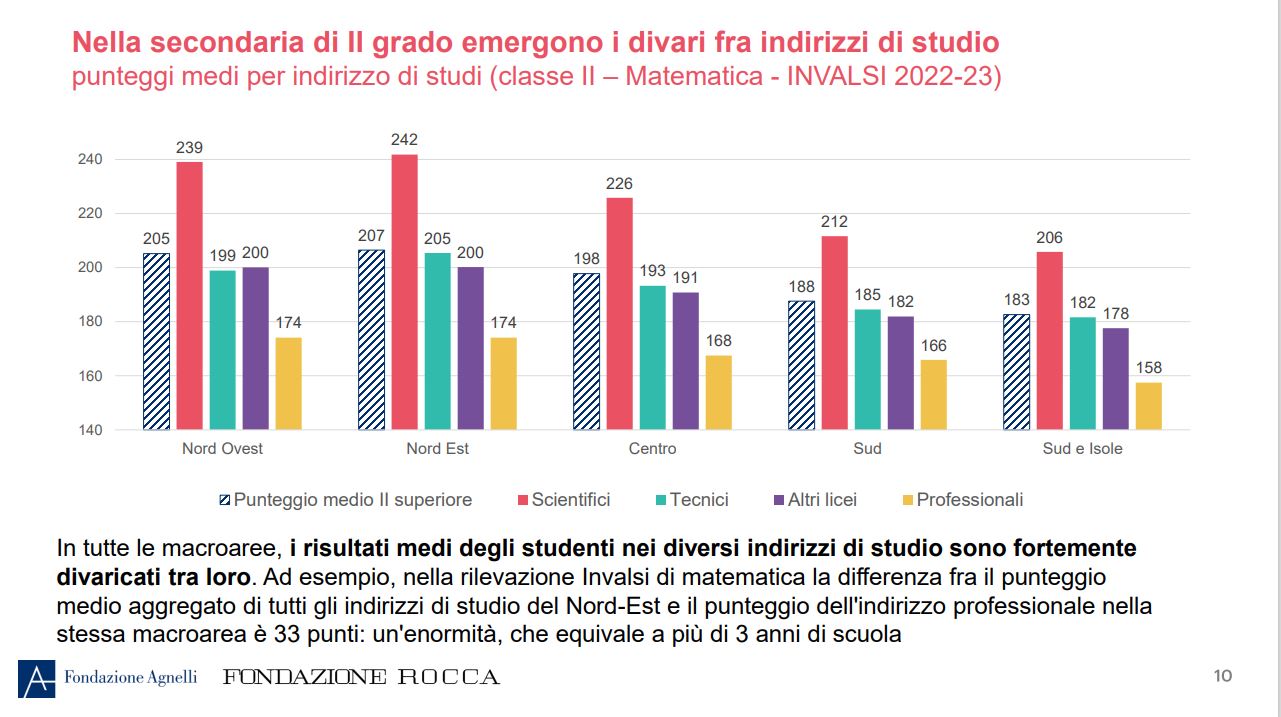
But the investigation, to which a group of researchers from the Sapienza of Rome also contributedit goes even more deeply because there are differences also pronounced between pupils of the same type of school and even between one class and the other of the same school, which are not attributable to the individual and family characteristics, nor to the socio -economic and cultural context. How to explain this variability of results, with the same starting conditions? A possible response is that at least a part of the differences depends on the type of actions put in place by the individual schools.
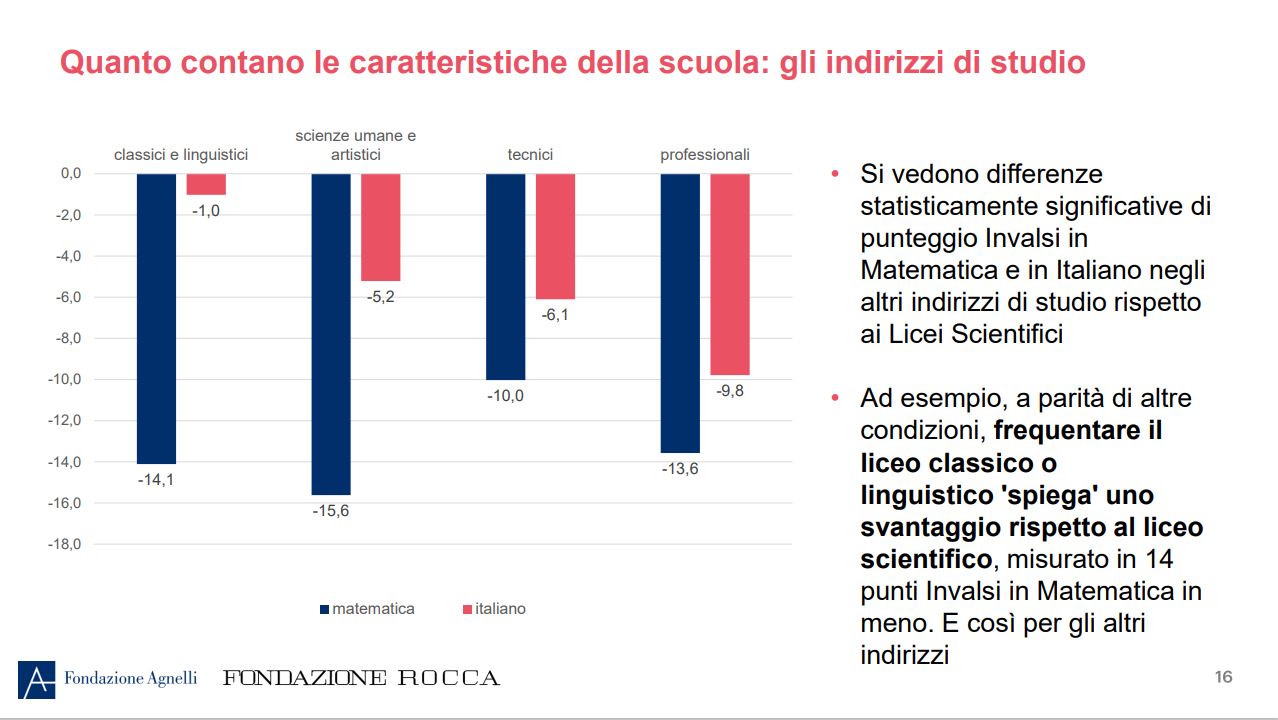
To confirm this hypothesis, the didactic models developed by 5 institutes that obtain much better results than those expected given the type of school and the socio-economic and territorial context of belonging (three professional institutes, a technician and a high school of four Lombardy regions, Emilia-Romagna, Lazio and Puglia). It came out that the performance of the boys improve several factors contribute: in the meantime it takes an enterprising principal, capable of exploiting resources materials and economic it has available, but that does not decide alonein order to create a climate of collaborative work. Then it takes teachers capable of elaborating together of the tailor -cut educational strategies of individual students, For example, differentiating nature and loading of homework. Also the offer of extracurricular activities, which help to strengthen students’ self -esteem, It makes a game: following a theater course can have positive repercussions on Italian or mathematics performance. And in class it is always better to try to minimize conflicts, rather than resorting to authoritarian management. But beyond the individual recipes, the important thing – underlines the research – is betting on the autonomy of schools, a true autonomy, which should be « accompanied », that is, supported and monitored by the Ministry. Because in the last instance they are « The individual schools to make the real difference », as Gianfelice Rocca, president of the Rocca Foundation concluded. The Minister of Education and Merit Giuseppe Valditarawhich was connected remotely to the conference, It has agreed on the importance of personalizing learning also through the use of artificial intelligence: an experimentation already started in four regions « which has given excellent results and which we will soon extend to other schools ».







